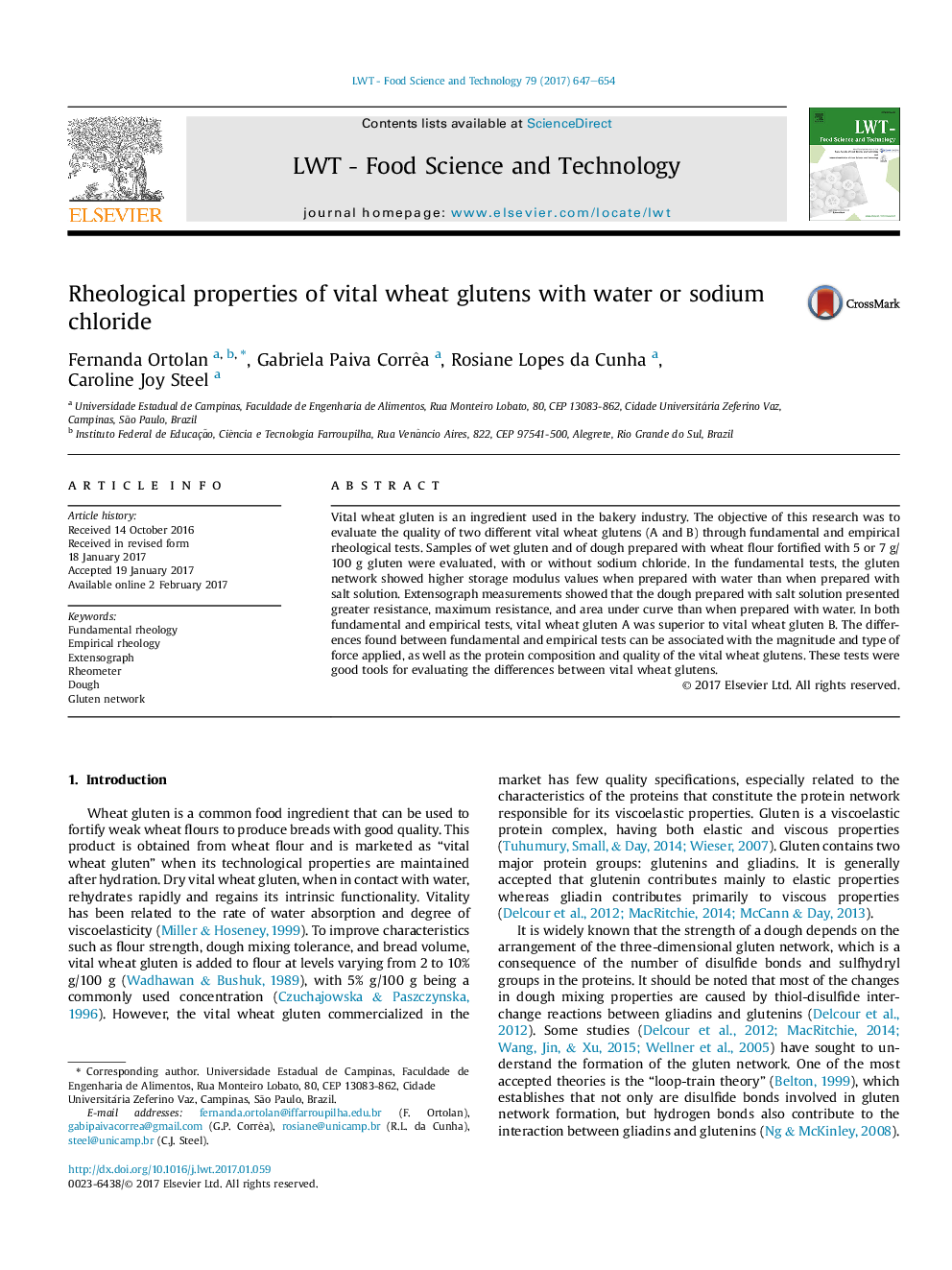| Article ID | Journal | Published Year | Pages | File Type |
|---|---|---|---|---|
| 5768818 | LWT - Food Science and Technology | 2017 | 8 Pages |
â¢Fundamental and empirical tests gave complementary details on vital gluten quality.â¢Vital wheat glutens of different baking quality presented differences in both tests.â¢The gluten network showed different behaviors with salt and with water.â¢NaCl influenced viscoelastic behavior differently in both tests.
Vital wheat gluten is an ingredient used in the bakery industry. The objective of this research was to evaluate the quality of two different vital wheat glutens (A and B) through fundamental and empirical rheological tests. Samples of wet gluten and of dough prepared with wheat flour fortified with 5 or 7Â g/100Â g gluten were evaluated, with or without sodium chloride. In the fundamental tests, the gluten network showed higher storage modulus values when prepared with water than when prepared with salt solution. Extensograph measurements showed that the dough prepared with salt solution presented greater resistance, maximum resistance, and area under curve than when prepared with water. In both fundamental and empirical tests, vital wheat gluten A was superior to vital wheat gluten B. The differences found between fundamental and empirical tests can be associated with the magnitude and type of force applied, as well as the protein composition and quality of the vital wheat glutens. These tests were good tools for evaluating the differences between vital wheat glutens.
